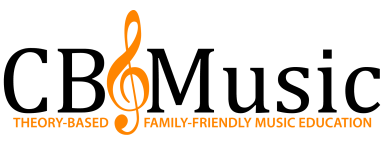Steven Spielberg… Louis Braille…Mahatma Gandhi…Mark Twain…Thomas Edison…Albert Einstein…Martin Luther King Jr….
What if I told you that you could be as great as these people? I know, I know, you’re probably thinking I’m crazy. Hang in with me here. Let’s start with something we already know.
What do these people have in common? Of course, they’re famous. But beyond that, they’re considered highly accomplished in their fields and known for their contributions to society. What else do they all have in common? You guessed it.
Music.
Every single one of these people played an instrument at some point in their lives. In fact, many of the most successful people in the world have a formal background in music. Why is that? I asked myself. After some thorough research, I discovered why an education in music is the key to leading a successful, impacting life.
From an early age, learning an instrument is proven to increase academic achievement. S studies conducted by the National Educational Music Company provide evidence that “music helps students learn to work effectively in the school environment without resorting to violent or inappropriate behavior,” and students who use music as an emotional outlet are far less likely to be “disruptive” in the classroom. Music literally provides a healthy, structured distraction—a personal form of entertainment that, whether you like it or not, makes you a better person.
It gets better.
Students aren’t the only ones reaping the benefits of music. That’s right, music is highly beneficial at any age.
In her radio broadcast titled “Never Too Late To Learn an Instrument,” international speaker Brigid McCarthy states that when learning an instrument, “your brain is working really hard: You’re reading the notes, counting out the rhythm and trying to keep a steady beat and make it sound like music.” All of these tasks combined actually improve brain function and memory retention. McCarthy further explains, “Unlike with language, there is no single music center in the brain… when brain scans have been done of musicians, you find the enormity of the areas of the brain that are actually being activated.” Researchers at the University of Kansas found that among adults between the ages of 63 and 80, those with the most amount of musical training scored highest on “cognitive tests, including those related to visual and spacial memory, naming objects and the brain’s ability to adapt to new information.” The best part? The benefits of musical training were still evident even in test subjects who no longer played an instrument.
Still not entirely convinced? It’s no secret, learning and practicing an instrument demands a truck load of patience and self-discipline. While these skills may not come naturally to you, learning music helps develop these in gradual steps. The upside—these healthy habits start spilling into other areas of your life.
In fact, learning an instrument has tons of practical, real-world applications. Author Alexis Kalivretenos’ article, “The Importance of Music Education,” explores the many areas in which music exercises the brain. By “decoding” music, the brain learns how to intensify its focus and multitask. While practicing, musicians eventually learn to “self-diagnose” a problem to improve their playing; this promotes problem-solving skills. To top it all off, learning to improvise on an instrument teaches responsible risk taking.
Who wouldn’t want to be a responsible risk-taker?
Music also improves collaborative skills and critical thinking. According to the National Educational Music Company, “Skills such as working in teams, communication, self-esteem, creative thinking, calmer attitudes, imagination, discipline, study skills and invention are learnt and improved through the study of music…” By participating in ensembles, musicians learn how to lead during a solo and when to follow as part of an accompaniment—a necessary skill in any work environment. Other collaborative skills like listening and communication also come into play (pun intended).
Most people find that music not only opens the doors to the mind but also those of the heart.
“[Music] transmits a message from the soul of the composer to the soul of the listener, and establishes a sympathy between any single hearer and his neighbors in the concert hall,” says music professor and author Edward Dickinson.
Music is a universal language—a means to process emotions and express when words simply can’t. This is something to which I’m sure all of us can relate.
According to behavioral scientist Vanessa Van Edwards, listening to, composing, and creating music can also reduce anxiety, “release tension and relieve stress.” It’s no wonder those tunes are so catchy in the elevator or when you’re on hold.
So what’s so great about music education? Everything, it seems. And while the task of learning an instrument seems daunting, it most definitely has its perks. As a musician myself, there’s no greater joy than reaching the next goal, surpassing my perceived potential, and watching others succeed in each step of their journeys right along with me.
Although you and I may not become famous inventors, genius theoretical physicists, or civil rights activists, we do know that music has the power to forge meaningful connections and an invaluable set of tools that will last a lifetime. With those, we can be successful. With those, we can truly make a difference in the world.
So go ahead—give it a try.
Music might just surprise you.
Chloe Price
